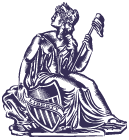|
|||||||||||
|
|
|||||||||||
|
|
|||||||||||




|
||||||||||||||||||||||||||||||||||||||||||||
|
|
||||||||||||||||||||||||||||||||||||||||||||
|
|
THE WESTERN FRONT In much of the coverage following his upset victory last week, the new House majority leader has been described as the "perpetually tanned" John Boehner. But when I met him on the eve of his triumph over Rep. Roy Blunt last week, what struck me was his high spirits. "I feel good," he said in the entryway of his office.
The following day his good cheer would be vindicated with a 122-109 second-ballot victory over Mr. Blunt, the acting majority leader and Tom DeLay protégé. Mr. Boehner already had some indication of what was coming. Earlier in the day he held a meeting with his supporters, and nearly four dozen members of Congress showed up, much more than expected, sending his staff happily scrambling for more chairs. The message he was pushing, along with John Shadegg (the other reform candidate), was breaking through. He estimated that two-thirds, "maybe more," of Republicans in the House had come to understand that their majority was itself at stake in the race for majority leader.
What has garnered surprisingly little if any attention among the press corps is Mr. Boehner's recent efforts to rein in large federal entitlements. In the past year Mr. Boehner used his chairmanship to champion significant reforms that could save taxpayers tens of billions of dollars in the coming years. All told, Mr. Boehner's reforms account for 40% of the savings in the $39 billion Deficit Reduction Act.
One set of reforms that now on its way to the president's desk will force companies to pay more appropriate fees to the Pension Benefit Guaranty Corp. A better funded PBGC makes a taxpayer bailout less likely, or at least less expensive. A second set of reforms rewrites the rules governing pensions, so as to compel employers to fund their retirement programs better and make those programs more transparent to employees. These reforms passed the House and now need to be ironed out in conference with the Senate.
Another set of Mr. Boehner's reforms made news, but mostly with inaccurate reports of "cuts" to federally funded college loan and grant programs. Both the number and the dollar amounts of loans and Pell Grants have gone up dramatically over the past five years, and they are expected to continue to grow. What Mr. Boehner did was reach into the mechanics of college aid programs to save taxpayer dollars by cutting subsidies to private banks. Those subsidies were created at a time when many people believed banks wouldn't lend money to students. Today there is a robust and competitive loan market and therefore little reason to continue the subsidies unchanged.
These reforms might have gotten a more serious look by journalists for the simple reason that student-loan giant Sallie Mae has been a large campaign contributor to Mr. Boehner. But then, a congressman not being influenced by the dollars given to his political action committee isn't front-page news. Both the pension and student aid reforms might also have made news because Mr. Boehner won support for them from across the aisle--70 Democrats voted for the pension reform that's on its way to the White House. But for all the talk of a need for more "bipartisanship," a lack of partisan rancor doesn't make headlines either.
Mr. Miniter is assistant editor of OpinionJournal.com. His column appears Tuesdays.
RESPOND TO THIS ARTICLE READ RESPONSES E-MAIL THIS TO A FRIEND PRINT FRIENDLY FORMAT HOME TOP OF PAGE AUTHOR BIO ARCHIVE
SUBSCRIBE TO THE WALL STREET JOURNAL ONLINE OR TAKE A TOUR
Copyright © 2005 Dow Jones & Company, Inc. All Rights Reserved. |
|
||||||||||||||||||||||||||||||||||||||||||






 So Mr. Boehner was willing to carve time out of his schedule for an interview, even though I'd met him only once before. Sitting in his office while puffing on a cigarette, he sized up the race, talked about the president's State of the Union Address and hinted at what he would like to accomplish as majority leader.
So Mr. Boehner was willing to carve time out of his schedule for an interview, even though I'd met him only once before. Sitting in his office while puffing on a cigarette, he sized up the race, talked about the president's State of the Union Address and hinted at what he would like to accomplish as majority leader.